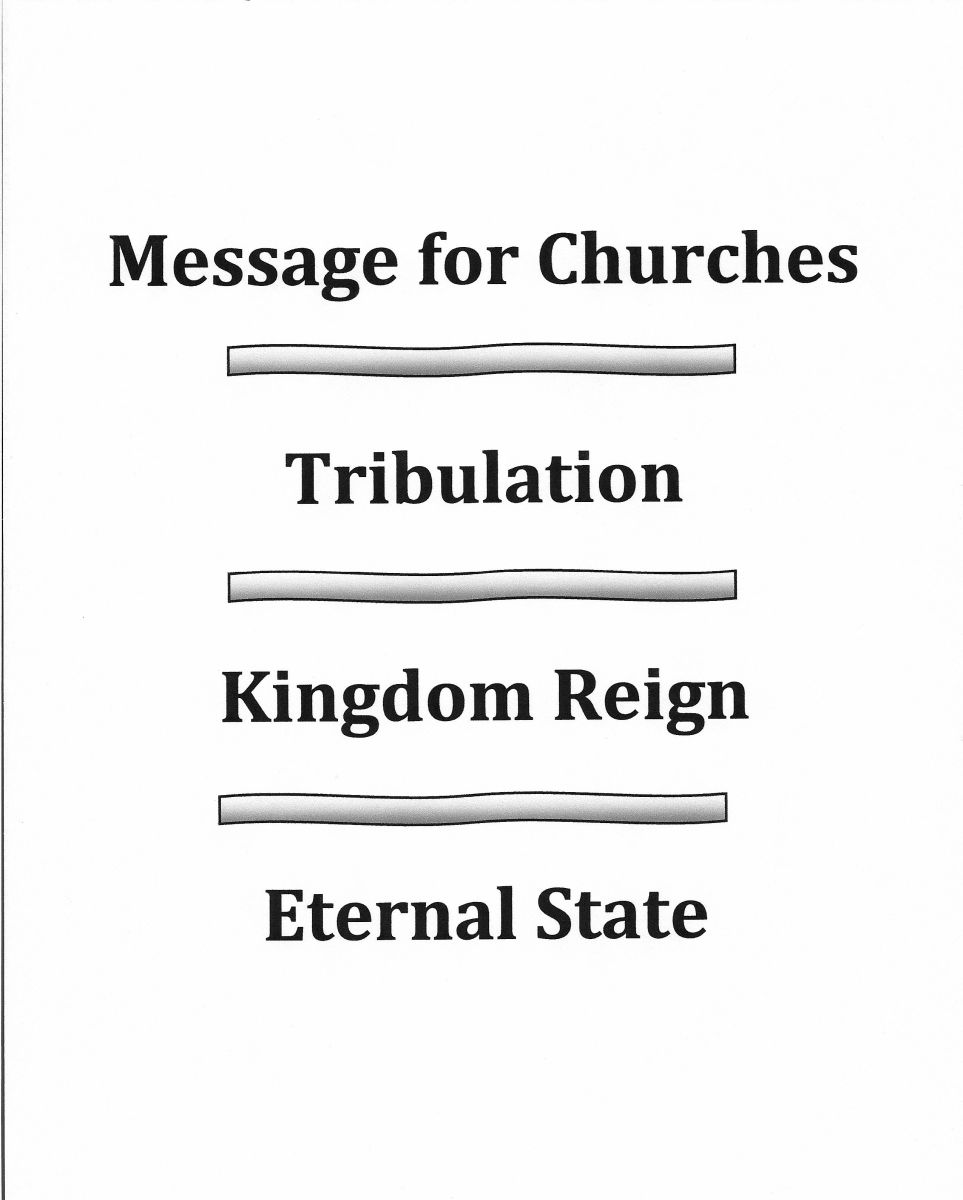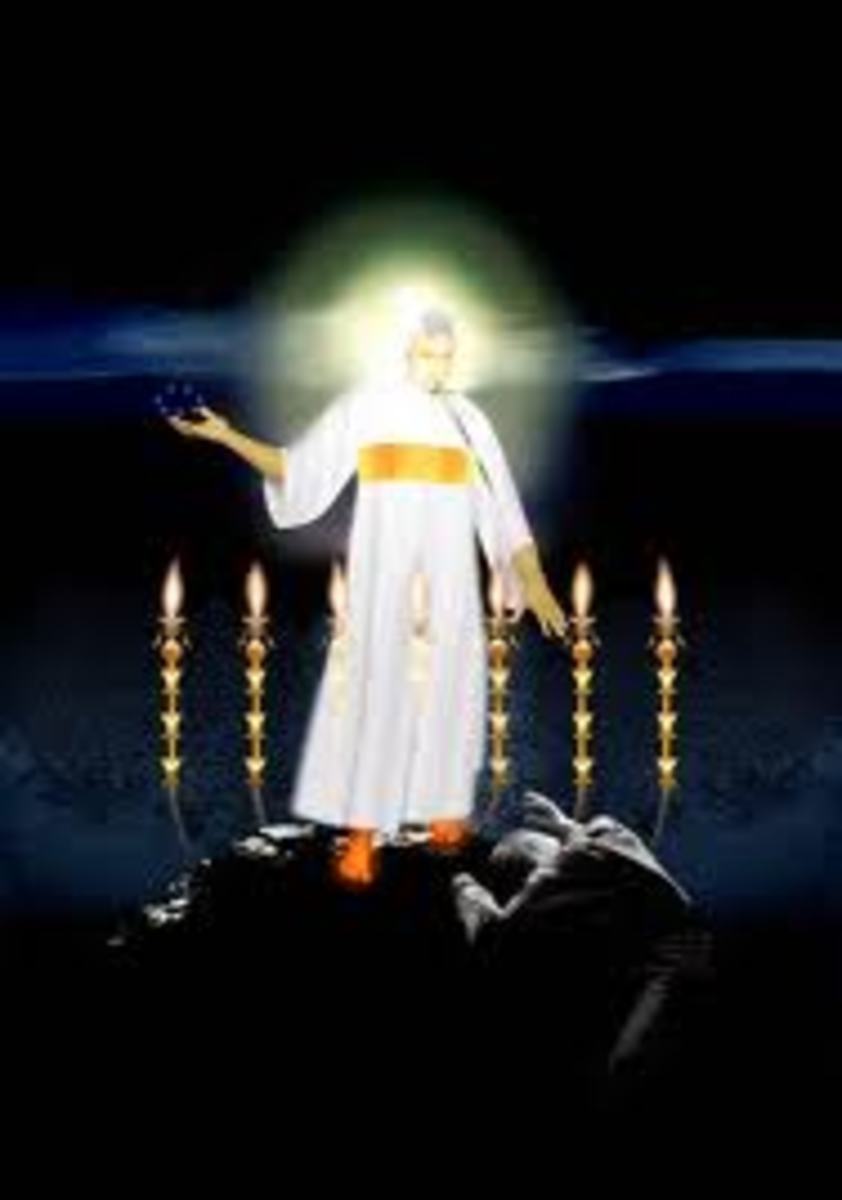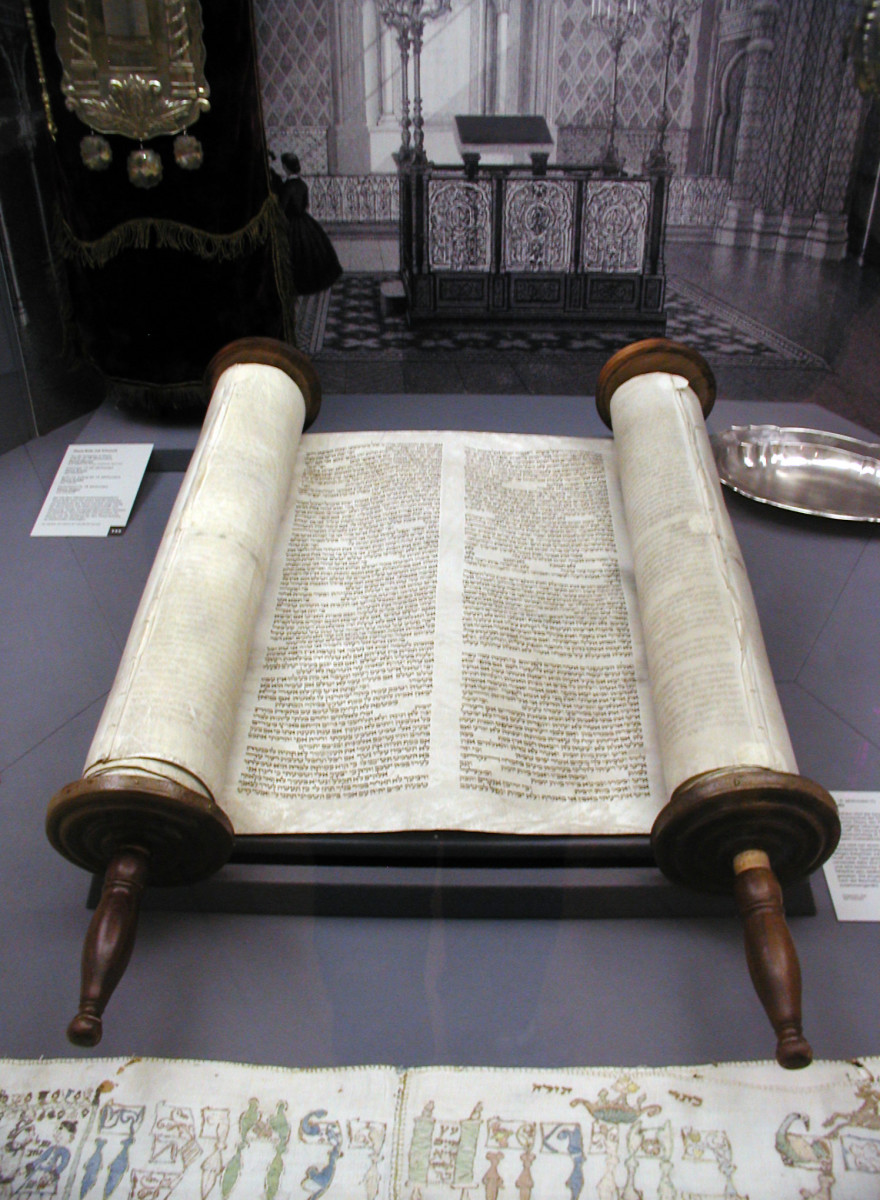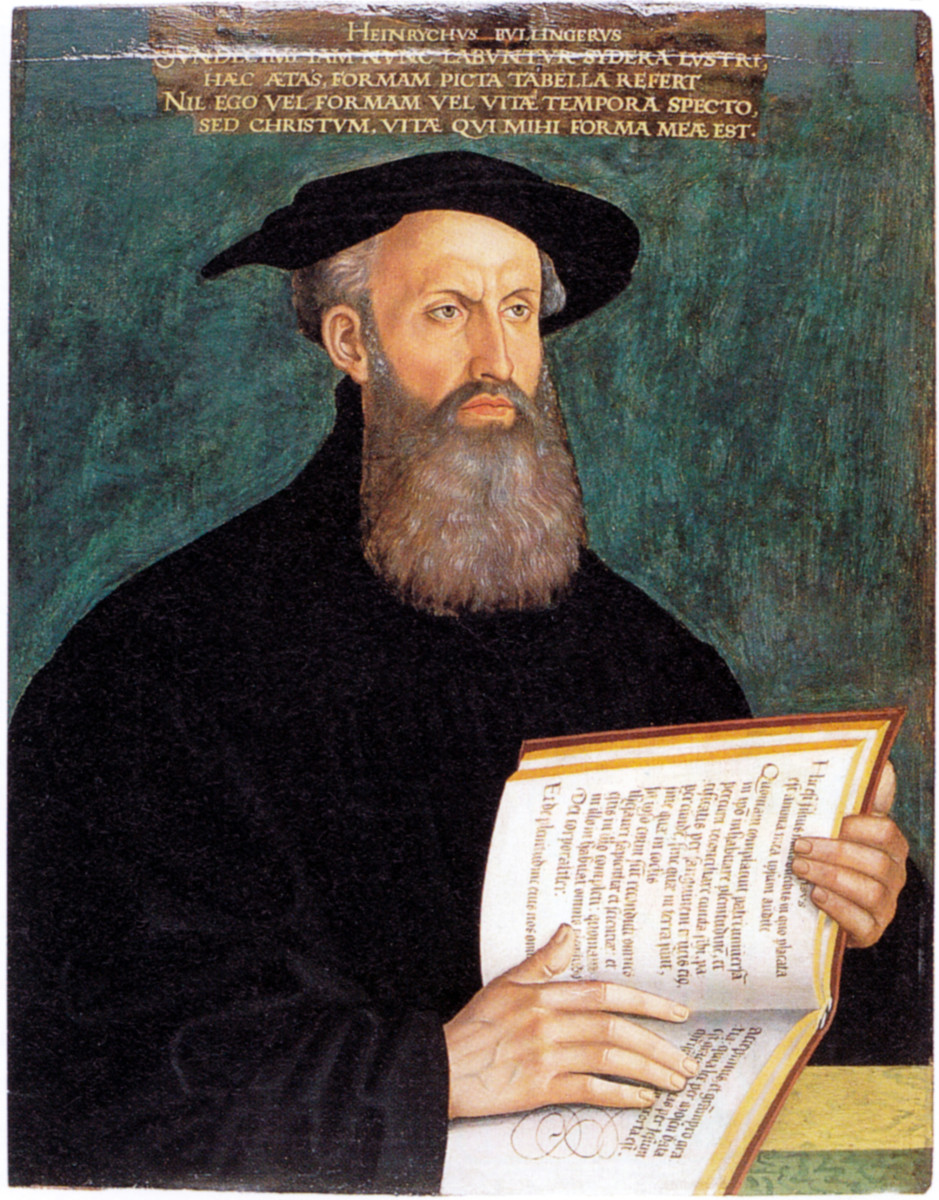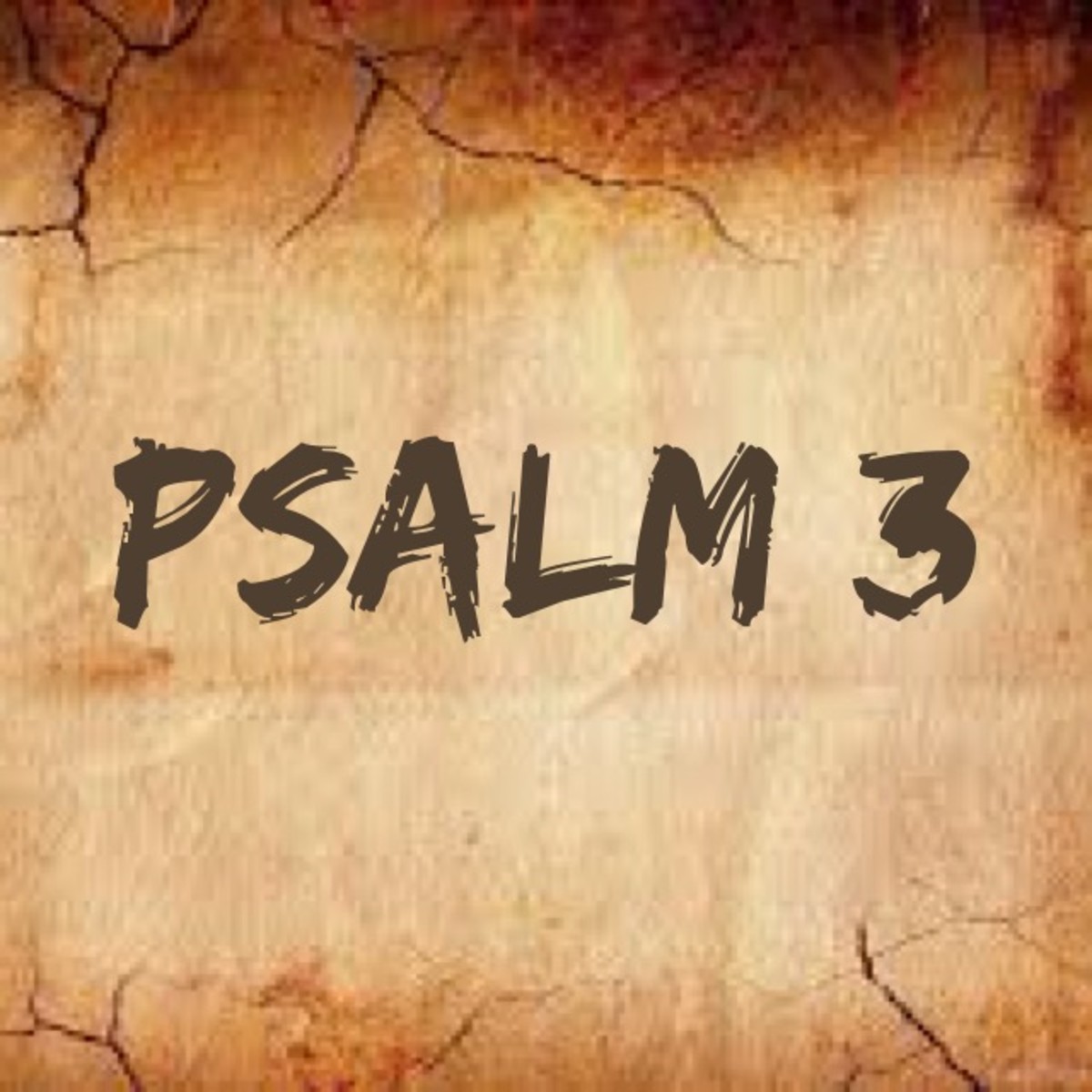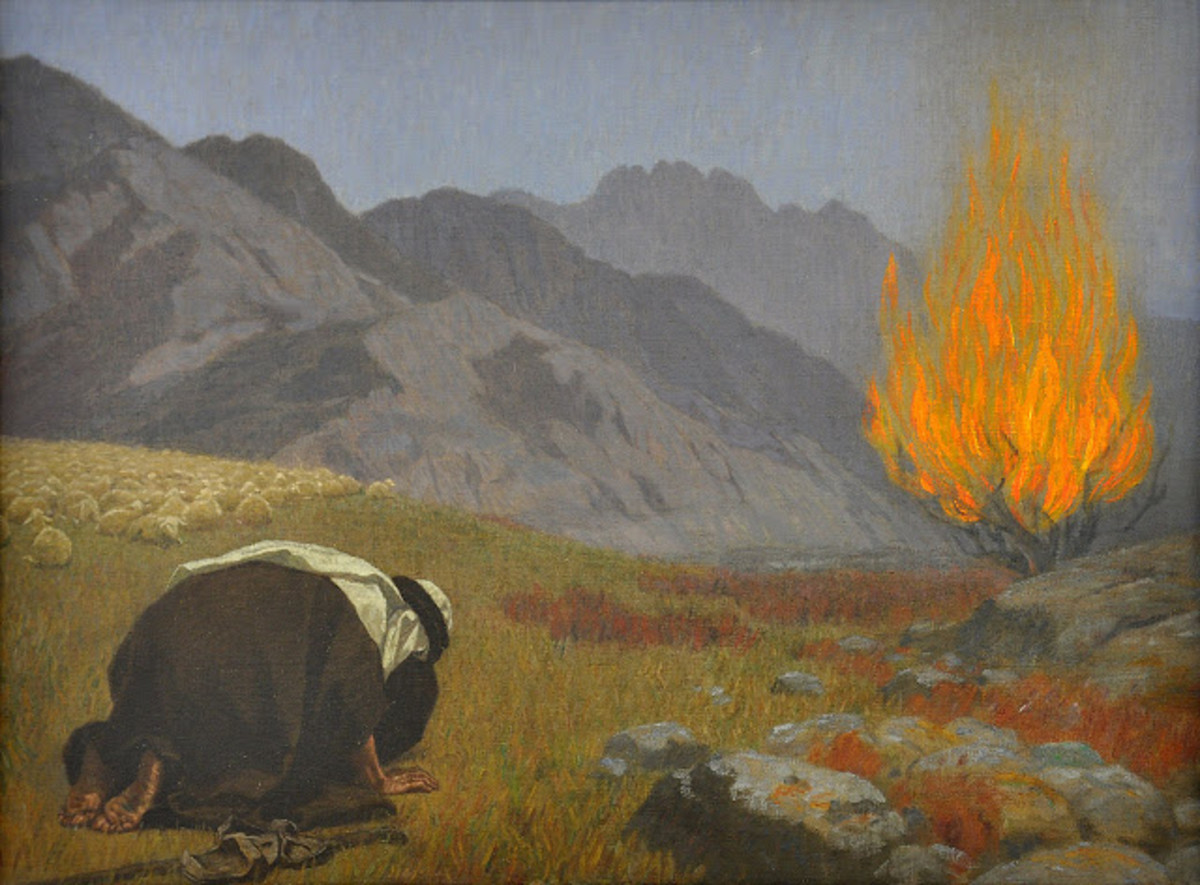Revealing Revelation - Part 4

Good intentions never go far. My intention was to do one study a day. For one reason if it is not daily this series would go on forever. I have already failed, but let me share my reason with you. My daughter gave birth to my 6th grandchild - all girls. I wrote about her in my hub Meet My Granddaughter (http://lifegate.hubpages.com/hub/Meet-My-Granddaughter. Of course at that time she was not yet born. I'll be updating that hub as soon as I get some more pictures to add. She's a cutie! After spending some time with her new family, I am ready to go again. Now back to Revelation
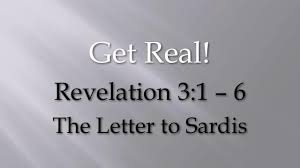
The Church at Sardis
We now come to the church of Sardis. Sardis represents the time period of church history corresponding to the Reformation. The Reformation began when Martin Luther nailed his 95 theses to the Catholic church door in Wittenburg, Germany. It continued until the missionary movement of the 1800’s.
Sardis was the capital of Lydia, one of the oldest and most important cities in Asia Minor. It was ruled by the Persians, Alexander, Antiochus, and finally by Rome. An earthquake destroyed Sardis during the reign of Tiberius. The religious worship of the day included the dual worship of Cybele (moon), and Apollo (sun).
In verse 1, Christ presents Himself as the seven Spirits, or the One who sent the Holy Spirit. It is not methods and programs that our churches need. It is the Holy Spirit that is so lacking in our churches today.
Christ commends the church, “I know thy works”. As we relate this to the reformation, the reformation brought justification by grace. That in turn brought forth works. It was during the time period of 1517-1800 that the true way of salvation was restored. Then the Scripture goes on to say, “thou hast a name that thou livest, and art dead.” Protestantism has a name, but is largely dead.
In verse 2 the church is told to wake up. Twice the city of Sardis was invaded because of carelessness. It was invaded by Cyrus the Mede in 549 BC, and by Anticochus in 218 BC. Church! Do not be caught sleeping. Protestantism has turned many away because of carelessness. Anyone can be ready for an appointed time, but we must be ready for an unexpected time. Let us remember the directive of Titus 2:13, “Looking for that blessed hope, and the glorious appearing of the great God, and our Saviour Jesus Christ.” Also, verse 2 mentions “for I have not found thy works perfect before God.” Even though Protestantism did recover the authority of God’s Word, justification by faith, and total depravity of man, much was left undone.
Verse 3—“Remember…hold fast…”. The idea here is that they are about to die. Protestantism is losing the great truths it has discovered. “If therefore thou shalt not watch, I will come on thee as a thief, and thou shalt not know what hour I will come upon thee.” Again, He says to them to watch, wake up.
Verse four goes on to say “…thou hast a few names.” The Reformation left a few names. Consider the following: Martin Luther (Lutheran), John Knox (Scotland), John Bunyun (Pilgrim’s Progress), John and Charles Wesley (Methodist), John Moffit (opened Africa to the Gospel), William Carey (India), and Titus Coan (the Hawaiian Revivals).
As we continue with verse five we read, “He that overcometh, the same shall be clothed in white raiment; and I will not blot out his name from the book of life, but I will confess his name before my Father, and before His angels.” What about this book of life? We read of the book of the generations in Genesis 5:1. This seems to be more a book of death. We see The book of the generation of Jesus Christ in Matthew 1:1. The second Adam gives life. But is our name written in the book of life when we are saved, or blotted out when we reject Christ and die? You decide. Consider the following verses: Exodus 32:32, 33; Deuteronomy 9:14, 29:20; Revelation 13:8; 17:8; 20:12, 15; 21:27; 22:19.
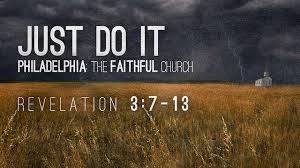
The Church at Philadelphia
Now we will turn our attention toward the church at Philadelphia. Philadelphia, of course, means love of a brother, or brotherly love. It was so at this church. There was nothing negative Christ had to say to this church. Other than the church at Smyrna, this is the only church that came away from the penetrating gaze of Christ in a clean way.
This church represented prophetically the missionary and revival period of the church. This prophetic period began toward the end of the 18th century and carried into the 20th century to about 1920. This was the time of great world preachers like D. L. Moody, Charles Finney, and Billy Sunday to name a few. History has never seen such an acceptance of the Gospel since the apostolic age represented by the early church at Ephesus.
Philadelphia was located about 125 miles inland from the Turkish border in a fertile valley. The land was fertile for the Gospel as well. This is a land that has been continuously inhabited although the descendants of the church are no longer there. Like so many other cities of the past, Philadelphia took its name from political leaders. Its name came to be because of the love Attalus II had for his brother Eumenes, king of Pergamos. From this we get the “city of brotherly love”.
Because of its strategic location, it developed into a great missionary church.
Now let us go to chapter 3:7, “And to the angel of the church in Philadelphia write; These things saith he that is holy, he that is true, he that hath the key of David, he that openeth, and no man shutteth; and shutteth and no man openeth." Christ reminds them of His past, present, and future holiness as their high priest. He reminds them that He is true (John 14:6). The key of David represents His rulership. Luke 1:32, 33 tells us, “He shall be great, and shall be called the Son of the Highest: and the Lord God shall give unto him the throne of his father David: And he shall reign over the house of Jacob for ever; and of his kingdom there shall be no end.” He takes the time to remind them of his holiness and truth, but also that it is He who has the right to rule over them.
Christ tells them in verse 8 that he knows their works. Christ is looking for fruit. We know that Ephesians 2:8, 9 explains that salvation is totally by grace through faith, but we sometimes forget that verse 10 tells us that “…we are his workmanship created in Christ Jesus unto good works, which God hath before ordained that we should walk in them.” We do not work to get saved. We should work because we are saved. God expects us to bring forth fruit. There is something wrong with our faith when it bears no fruit.
He sets before them an open door. The door was open and He expected the Philadelphia church to go through it. My friend, if He sets an open door before you He also expects you to go through it. Just trust Him completely. There is a reason why the door is open.
He mentions their little strength. Even though they were a small group, they were powerful. God always uses small things. Gideon’s group of only 300 was well able to send the Midianites on their way. Goliath was no match for little David. The unarmed Israelites easily escaped the armies of Egypt through the open door of the Red Sea.
Then Christ mentions that they have kept His Word. Just as today, the Word of God has always been under attack. Even though the attacks came, they kept His Word. They did not deny Him or His Word. They stood for His cause.
Now in verse 9 we see the synagogue of satan. They claim to be Jews but are not. Romans 9:6 says, “Not as though the word of God hath taken none effect. For they are not all Israel, which are of Israel.” All of the saved Jews left the synagogue for the church. Thus the synagogue was left with unsaved individuals, the synagogue of satan. But through it all the church’s enemies would know of God’s special love for them.
The Judge and High Priest continues in verse 10, “Because thou hast kept the word of my patience, I also will keep thee from the hour of temptation, which shall come upon all the world, to try them that dwell upon the earth.” II Thessalonians 3:5 says, “And the Lord direct your hearts into the love of God, and the patient waiting for Christ.” The Philadelphia church was patiently waiting for Christ’s return. Although the rapture did not take place during their existence, God still protected them and met their needs. They had an open door.
Realize please, that there are at least three views of the rapture. Pre-tribulation (before the rapture), mid-tribulation (in the middle of the tribulation) and post-tribulation (after the seven year tribulation). Realize, too, that only one of these can be correct. Without going into a lot of detail at this time, note the church would be kept from the hour of temptation or tribulation that would come to all the earth. We will see when we look at chapter four that the rapture takes place before the tribulation (pre-tribulation). God is patient today with a world that has rejected Him (II Peter 3:9). He will keep His church from the Great Tribulation (I Thessalonians 4:13-18; Titus 2:13).
In verse 11, Christ mentions that He will come quickly. The Greek Word “tachu” means “suddenly” as a thief in the night. But He will also come quick, “in a moment, in the twinkling of an eye.”

The Church at Laodicea
Leaving the church at Philadelphia we come to the church at Laodicea. Prophetically, this church represents our present age. The church and age that makes God sick. The city of Laodicea was named after the wife of Antiochus II. It was known as the “gateway to Phrygia. It was a passage from the oriental east where the great caravans traveled. The primitive Phrygian god, Menkarou was worshipped along with Jupiter and Zeus. The temple there was the center of society, trade, and religion.
The name “Amen” only appears once in Scripture. It is used here by Christ to establish the fact that He has the final say; that He is the True One and will not put up with foolishness. He mentions that He is faithful and true. He is not the news media, the government, educational facilities or the military. He is the once and for all Truth and He is about to reveal Himself to those at Laodicea.
Unlike the other churches, Christ says in verse 15 that “I know thy works”, but these are not good works. There is absolutely no word of commendation to this church. The church at Laodicea was the luke warm church. The aquaduct from the Phrygian Mountains brought ice cold water to the city, but by the time it reached the city, it would be luke warm. There were also boiling springs nearby, but by the time it was brought back for use it had turned to a sickening warm. Likewise, Christ sees this church as sickening. Today we are living in times that make God sick. Churches today compromise to keep their attendance, to please people. The only One we should be wanting to please is God. If people can be pleased in the process—fine, but it is better to please God and displease people than to displease God, period.
Contrast this with verse 19 where they are told to be zealous—to be hot! God wants His people hot and on fire. He wants His people to repent. This was a different concept for the Laodicea church. They were self sufficient and saw no need of dependence upon God at all. They were “playing church”. Sound familiar?
We are to be consumed with Christ.
Verse 17 says that the church was rich. Laodicea and Sardis were two of the richest areas of the time. They were boastful of their riches and thought that was the answer. Poor Smyrna, no money but they had the blessing of God. I Corinthians 1:26, “For ye see your calling, brethren, how that not many wise men after the flesh, not many mighty, not many noble, are called.” It is not the mighty and rich that God blesses. It is the meek and humble. We have many local churches today that boast of their wealth, large memberships, and gorgeous buildings. But where is the Gospel in some of these churches?
Philadelphia had an open door, but the door to Christ working was closed in Laodicea, not by Christ, but by the church. Verse 20 says, “Behold, I stand at the door, and knock: if any man hear my voice, and open the door, I will come into him, and will sup with him, and he with me.” They needed to open the door. The famous picture by Holman Hunt shows Jesus standing at a door knocking. If you look carefully, you will see that there is no doorknob. The door can only be opened from the inside. God is knocking at so many hearts doors today, maybe yours! The door must be opened from the inside. Jesus never forces Himself on anybody.
This prophetic look at the seven churches leads us into chapter 4 where we will see removed both the church and the Holy Spirit. This leads directly into the Tribulation.
In Revelation 3:22 we read, “He that hath an ear, let him hear what the Spirit saith unto the churches. You will not find the word “church” or “churches mentioned again until Revelation 22:16. The reason for this is simple. The church is not there. The church is raptured and a lost and dying world is left behind

